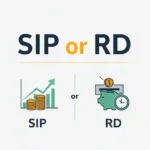Fixed-income mutual funds are a vital part of a diversified investment portfolio, particularly for investors seeking stable returns and reduced volatility.
Fixed income mutual funds invest in securities that pay a fixed rate of return, such as bonds, debentures, and money market instruments. These funds offer investors regular income with less risk compared to equity funds, making them an attractive option for conservative investors and those approaching retirement. Whether you’re looking for steady income or a safer investment vehicle in a volatile market, understanding fixed income mutual funds can help you make informed financial decisions.
What is a Fixed Income Mutual Fund?
A fixed-income mutual fund is a mutual fund that predominantly invests in debt securities. These funds earn returns in the form of interest income from the underlying fixed-income assets. In contrast to equity funds, which invest in equities and are exposed to market volatility, fixed-income funds are relatively stable and are aimed at generating regular income in addition to capital preservation. Investors get returns in the form of periodic dividends or interest receipts, and such funds largely attract risk-averse investors looking for certain returns.

Features and Benefits of Fixed Income Mutual Funds
Key Features
- Stable Returns: Fixed income mutual funds provide fixed returns in the form of interest or coupon payment.
- Diversification: These funds invest in a diversified portfolio of debt instruments, reducing the risk associated with individual securities.
- Capital Preservation: They focus on preserving capital while providing modest growth, making them ideal for conservative investors.
- Low Volatility: Compared to equity funds, fixed income funds experience lower price fluctuations.
- Professional Management: Experienced fund managers select a mix of high-quality debt instruments to optimize returns and manage risk.
Benefits
- Regular Income: Fixed income funds provide steady dividend or interest payments, which can supplement your income.
- Risk Mitigation: The diversified nature of these funds helps minimize the impact of defaults or market downturns.
- Flexibility: Investors can choose funds based on duration, credit quality, and yield to match their risk tolerance and investment horizon.
- Inflation Hedge: Some fixed income funds invest in inflation-linked bonds that protect against rising prices.
- Tax Efficiency: Depending on the jurisdiction, long-term capital gains and interest income from certain debt instruments may enjoy favorable tax treatment.
Factors to Consider Before Investing in Fixed Income Mutual Funds
Before investing, it’s important to evaluate several key factors:
1. Interest Rate Environment
- Impact on Bond Prices: When interest rates rise, bond prices tend to fall, which can affect fund performance.
- Duration: Shorter duration funds are less sensitive to interest rate changes, while longer duration funds may offer higher yields but with increased interest rate risk.
2. Credit Quality
- Risk of Default: Assess the credit rating of the debt instruments in the fund’s portfolio. Higher-rated bonds are typically safer but may offer lower yields.
- Diversification: Ensure the fund maintains diversification across various issuers to mitigate default risk.
3. Expense Ratio
- Management Fees: Lower expense ratios can help boost net returns over the long term.
- Cost Efficiency: Compare fees across different funds to find a cost-effective option without compromising on quality.
4. Fund Manager’s Track Record
- Experience: Evaluate the performance history of the fund manager.
- Management Strategy: Understand the investment approach and risk management techniques employed by the manager.
5. Inflation Impact
- Real Returns: Consider how inflation might erode the purchasing power of fixed income returns.
- Inflation-Linked Options: Look into funds that include inflation-linked bonds if inflation is a major concern.
Final Thought
Fixed-income mutual funds are a solid, income-producing investment choice that can be a great complement to a diversified portfolio. They provide stable returns, less volatility, and an emphasis on capital preservation—making them well-suited for conservative investors or those approaching retirement. Yet, like with every investment, consider the prevailing interest rate climate, credit quality, fees, and the skill of the fund manager before taking the plunge. With a keen examination of these considerations, you can align your fixed-income investments according to your fiscal objectives and handle market vagaries with aplomb.
Frequently Asked Questions (FAQ)
What are fixed income mutual funds exactly?
Fixed-income mutual funds invest in debt securities such as bonds and debentures, providing regular income in the form of interest payments and lower volatility as compared to equity funds.
What is the impact of interest rate fluctuations on these funds?
An increase in interest rates causes the value of outstanding bonds to decline, which in turn can decrease the NAV of fixed-income funds. Decreasing interest rates can hike bond prices and enhance fund performance.
Why is the duration of the fund important?
Duration quantifies the sensitivity of a bond to a change in interest rates. Short-duration funds are less sensitive to interest rate fluctuations, whereas longer-duration funds are more volatile but potentially yield higher returns.
Is the fixed income mutual fund apt for inflation?
Although conventional fixed-income funds are not completely safeguarded against inflation, certain funds invest in inflation-indexed bonds that maintain purchasing power.
How do I select the appropriate fixed income fund?
Look at the interest rate environment, credit quality of the bonds, expense ratios, and the experience of the fund manager to choose a fund that suits your investment goals and risk appetite.










